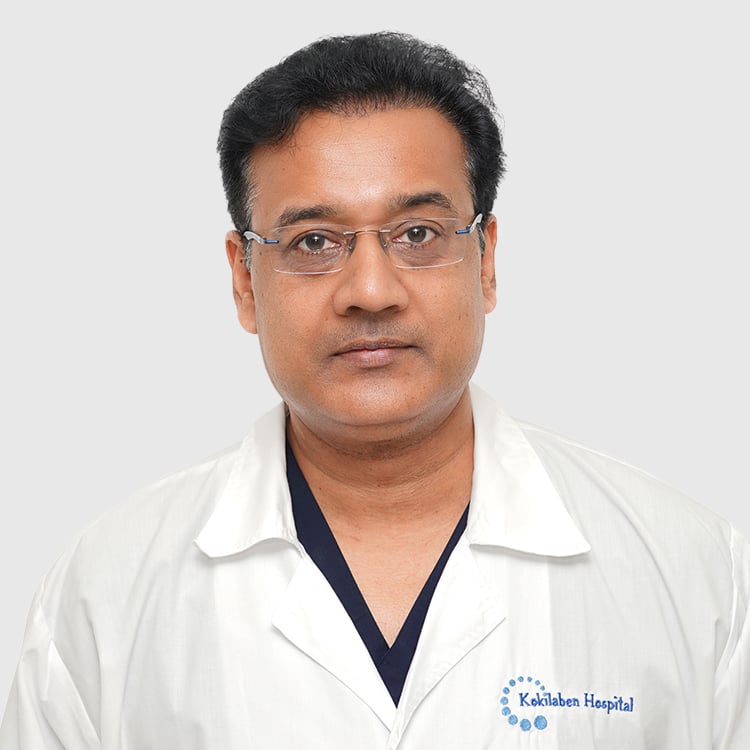Child is not simply a miniature adult. Hence surgery in paediatric age group is a specialised field involving correction of defects that a child is born with, so as to restore the normal anatomical & physiological function. It is best accomplished with trained paediatric surgeons, paediatric anaesthetist and support staff trained for giving special care.
The thought of a child going through surgery is a matter of concern for every parent. However, it is a fact that most of children go through surgery better than adults.
Some problems can even make them prone to infections that are life-threatening, while others will interfere with the normal development of the child. Some babies do not look normal. In these cases, performing a surgery will not only make them look better but also help them face the world with greater confidence.
Some problems noticed at birth need to be treated immediately – these can be treated after children are a little older. There may be infections or other events that need surgical treatments. At times, children have diseases similar to adults, however, their diagnostic criteria and their management may be different from adults, like in cases of appendicitis and hernia.
Irrespective of the reason for surgery, gentleness and special care are always needed in the surgical treatment of children.In the initial years of a childs life, squamous epithelium has no separation between the glans and the foreskin. As a result of this incomplete separation, the prepuce or foreskin may not be fully retractable until several years after birth. This is physiological phimosis and needs no treatment. However there may be recurrent balanoposthitis resulting fibrosis with resultant narrowing of the prepuce and dysuria, which may require surgical correction.
We now have preputioplasty as an alternative surgical procedure to circumcision. Preputioplasty helps release of the narrowed preputial opening without sacrificing the prepuce itself.However, one needs to rule out the possibility of Hirschsprung’s disease in a case of chronic constipation especially if the symptoms are present since birth. Traditional treatment options for a child included a multi-stage approach wherein the child is subjected to three surgeries and is left with a scarred abdomen.
However we now have the option of endoanal pullthrough (scarless surgery). Endoanal pullthrough entails removal of the diseased (aganglionic) colon entirely by the anal route and thus the childs abdomen remains untouched.Other problems may not have any harmful effects in the near future. Such operations can be planned after the child has grown a bit, or at the convenience of the family members.
Most operations will require the child to be asleep during surgery, so sedation or general anaesthesia will be needed. For most routine surgeries, the child will be free from pain a day or two after the operation.
For older children who can understand, it is best to prepare them for surgery by explaining the need for surgery and that it is required for their good health. It is not advisable to lie and trick children into surgery.
Paediatric surgeons are much more than just technicians. They know about all the aspects of the disease which they are treating, including how to handle a child.
Operating on children is a very delicate procedure and requires special care and gentleness on the part of the surgeon. It is necessary for a surgeon to exclusively perform such delicate surgeries on a regular basis in order to develop an expertise in this field.Hypospadias as a clinical entity and as a surgical problem has beguiled the surgeons and the patients since time immemorial. Traditionally Hypospadias surgery has had poor success rates and over the years it has been accepted that the treatment of Hypospadias should be done by a Surgeon Specializing in Hypospadias Surgery, namely a Hypospadiologist. Even now the surgery for Hypospadias in India involves a minimum of 7-10 days of Hospital stay even in the best of centres.
At Kokilaben under the able hands of Dr. Gursev Sandlas we have developed a new technique of Catheterless Hypospadias surgery. The technique is unique in that no stent or catheter is placed in the Patient after surgery which ensures painless faster recovery. Typically a hypospadias patient goes home the same day or the next day. It has been possible because of changes in the technique of traditional hypospadias repair thus optimizing the surgical repair and ensuring successful repairs everytime. Our complication rate of 1% is amongst the lowest in the World.
So if your child has been advised a Hypospadias Surgery, do drop in for a Second opinion. Our specialized Hypospadias Clinic will ensure a wonderful experience and a faster uncomplicated recovery for your child.
Though uncommon in the past, kidney and bladder stones in children have shown an exponential increase in incidence in the past decade. This could be attributed to changing life styles as well as dietary patterns to a large extent. Traditionally due to lack of equipment and expertise most of the kids were offered an open surgical procedure for the removal of these stones.
At the Dept of Paediatric Urology at Kokilaben Ambani Hospital under the able guidance of Dr. Gursev Sandlas, we offer state of the Art solutions for Stones in the form of Paediatric Endo-Urology.
Endo-Urology basically involves use of sophisticated telescopes that are introduced through the natural orifices of the urinary tract for removal of stones. This technique ensures no external cuts on the body which translates to faster and pain free recovery for the child. Typically it is a day care procedure with a majority of children going home the same day having been relieved of their stone problem in the best possible way.
If your child has been diagnosed with kidney or bladder stones and surgery has been recommended, it's advisable to consult a pediatric surgeon in Indore. The Department of Pediatric Urology at Kokilaben Ambani Hospital offers advanced non-surgical solutions for such conditions.

Children/Paediatrics, Mother & Child
Pediatric Urology Neontal Surgery Minimal Access Surgery